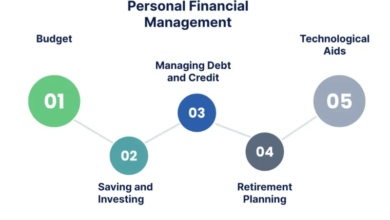
The process of opening a business bank account is one of the most critical in building your company’s financial infrastructure. Not only does it keep personal and business finances separate, but it also: Streamlines transactions Enhances professionalism Simplifies tax processes. In this guide, you’ll find an in-depth look at how to open a business bank account in the U.S., what’s required, as well as the pros and cons to help you decide if it’s right for you.
Advantages of Opening a Business Bank Account
- Separation of finances: Separates personal and business finances, making accounting and taxes easier to file.
- Professionalism: Direct payments add credibility to the business.
- Financial Management: Eases tracking of income and expenses used for budgeting and financial planning.
- The ability to Open Doors to Banking Services: Qualify for business loans, credit lines, and merchant account services.
How to Open a Business Bank Account (Step by Step Guide)
Pick the Right Business Structure
Your business type (sole proprietorship, partnership, LLC, corporation) impacts your documentation needs and liability protection provided. To open an account, you need to understand the legal structure of your business.
Your guide to International Moving in 2 simple steps:
To verify your business and that you are authorized to open an account, banks need particular documents. Some commonly required documents include:
- Employer Identification Number (EIN): This number is issued to your business for tax identification purposes by the IRS. Sole proprietors that do not hire employees can use their Social Security Number instead.
- Legal Business Name: Articles of incorporation, operating agreements or partnership agreements that create the legal existence of your business.
- Ownership Agreements: Agreements that detail ownership percentages and roles, primarily for LLCs and corporations
- Business License: Ensures your business is authorized to operate in your state, or locality.
- Personal Identification: Bring a government-issued photo ID like a driver’s license or passport to prove who you are.
Research and Select a Bank
Here are some key factors to consider when selecting a bank for your business:
- Monthly Fees and Minimum Balances: Look for monthly fees, transaction fees, and minimum balances.
- Banking Relationships in Business: Work With a Bank That Satisfies Your Business Needs If you are a small business owner, you want your bank to offer relevant services like (merchant services, a line of credit, business credit cards).
- Online and Mobile Banking: Look at the bank’s online and mobile banking services and see if you can easily manage your account.
- Customer Support: Having access to a specialized business banking customer support line can be the difference between getting an issue resolved quickly or not.
Apply for the Account
After you’ve chosen a bank, you can usually apply online or in person. The documentation that had been organized in the previous step will be required for the application process. Some banks might even ask for a deposit to activate the account.
Fund the Account
Minimum deposit requirements vary by bank and by account type. Some banks allow you to open an account without a minimum deposit, but others may require an opening deposit of $25 to $100. You can check with your selected bank for specific requirements.
Different Types of Business Accounts
- Business Checking Account: Best for day-to-day transactions like deposits, withdrawals and bill payments.
- Business Savings Account: Used to stash cash for upcoming purchases or emergencies, generally earning interest as time goes by.
- Merchant Services Account: Allows your business to accept credit and debit card payments, which is necessary for retail and online sales.
Additional Considerations
- Have a deep understanding of the bank policies: The banks have policies for maintaining the account and for transactions and the limits it has, etc. Be very well acquainted with the same in order to not end up paying unwanted charges.
- Establishing Business Credit: A business bank account is a key initial step to establishing business credit, which is useful for future financing.
- Regulatory Compliance: Make sure your business adheres to all federal and state regulations, including those governing banking and financial transactions.
Conclusion
A business bank account is a financial formality that places your business in a good position to support current growth now and more stability in the future. With an awareness of the requirements, with selection of a bank and with keeping financial records you prepare your business for success. Remember to always speak to financial consultants or banking representatives to ensure that the banking solutions that you decide suit the purpose of your business.
Want to scale a business bank account now? Begin your search by looking up banks that provide services and rewards aligned with the needs of your business. So, compile your required documents and step through the door to secure your business’s financial future!





